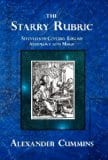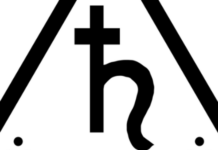 The Starry Rubric: Seventeenth-century English Astrology and Magic, by Alexander Cummins
The Starry Rubric: Seventeenth-century English Astrology and Magic, by Alexander Cummins
Hadean Press, 9781907881213, 166 pp., 2012
Alexander Cummins is a new name in the field of historical research, but you will hear more of him in the future, I hope. This review is based on an electronic copy of the work, but having seen the quality, appeal and sheer tactile beauty of Hadean’s previous output, buyers of the physical book are in for a treat; the production standards and quality of materials in use are both extremely high. These books are going to be around for centuries, which is pleasing.
Both (some) academics and lay readers might ask “Astrology? A load of old nonsense isn’t it?” Maybe, but it still has a power to influence behaviour and beliefs in the 21st century (for example I bet you can tell me your star sign, without even pausing?) when we are all supposed to be rational scientific thinkers. Imagine the added power, then, of a system that was so all-encompassing, some four centuries ago, before the advent of mass literacy, TV and the internet. Wisely this book does not delve deeply into whether the systems in use ever worked, instead this worthy book concentrates more on the history and social function of how believing that it did work affected how people acted, what they did and believed, and what they thought, and said, and wrote. That is definitely fertile ground for the researcher, and this book plants many seeds in that ground. The harvest is exceptionally interesting, with chapters covering both prophetic and propaganda uses of astrology, and the personal, the societal, the political and the practical implications for those who consulted astrologers in those times (and, indeed by implication, those who do so now).
Astrology was, as Cummins impresses on the reader many times, a belief system that linked everything to everything else, (an early example of a unified field theory, as he so delightfully speculates) and it was a system that governed very much of our behaviour, both individually and as various communities. This was not so long ago, either – the farmer who sowed his seeds at an astrologically auspicious time, the traveller wary of the dangers of a long journey, the doctor making a diagnosis … it is all joined. An alternative title to this book might indeed have been “what made people tick in the C17th.”
By showing the effective and efficient links between all spheres of activity and belief, the social, the magical, the political, the medical etc, the author has made a major contribution to how we understand our forebears, and, in doing so, how we also understand ourselves today. The 17th century is only “yesterday” in terms of mere human generations since our species emerged, and we still carry much of that Century in us today, albeit veiled. Perhaps the main achievement (of several) in this work is the re-linking of astrology and magic. Often academics divorce one form the other for purposes of study, but as Cummins repeatedly shows, the two are intrinsically linked, and to study one without the other is akin to working on the French language without ever consulting a native speaker (my clumsy metaphor, not his). While at the outset this work appears to be a book of history, it is also a book of philosophy, psychology and, if you want it to be, a narrative of self-analysis. It also tells us a lot about how we even acquire knowledge at all, and how we make meaning from it afterwards. To that end it is recommended to anyone who likes a great story, anyone interested in history, magic, politics, any of the –ologies, religion, society and much more. Despite the national issues implied in the title the areas examined do not limit this fine study to readers in England either, anyone can gain something from this lovely tome. I hope the lay reader, magician, astrologer, undergraduate, postgraduate and experienced academic will all gain something from this. An extensive bibliography of primary and secondary sources adds considerable reference value to this work. Written in an engaging, entertaining and accessible style this book deserves to sell heavily, and to be well- and widely- read. I look forward to seeing whatever Cummins produces next. Based on the very high quality of this work, it will be a revelation.
Disclosure: The attentive reader of the book will note that I am one of many folk who are named in the author’s “thanks to….” section. I am deeply touched by this, but it has not made any difference to the words in this review, or the tone, which consists of my honest appraisal of the work- an honesty which logically and naturally extends to my disclosing this matter simultaneously with the text of the review.







